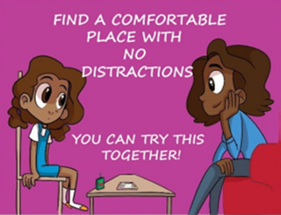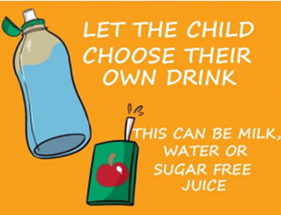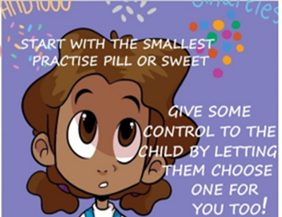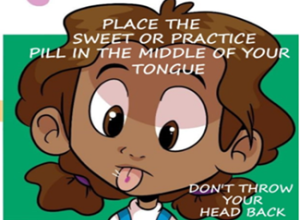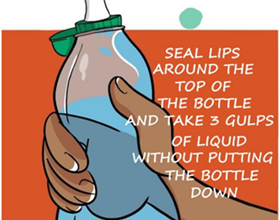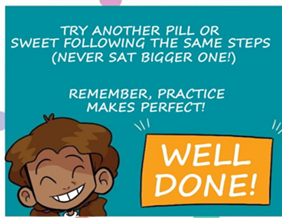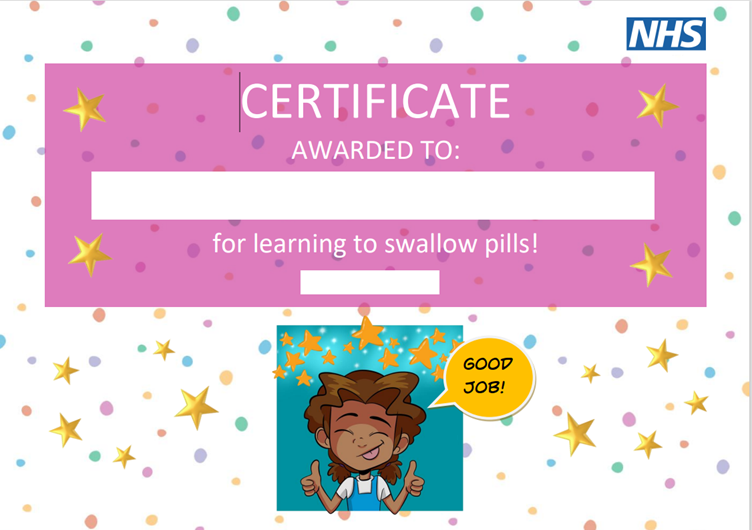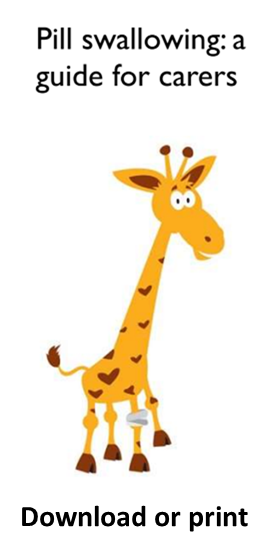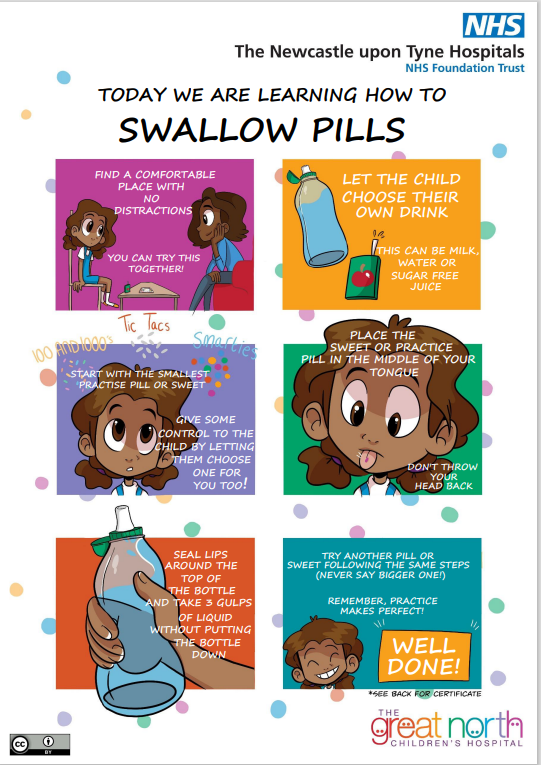Swallowing pills (Kidzmed)
Kidzmed is a programme developed to help families to teach children and young people how to swallow pills using a simple six-step technique. It was set up at the Great North Children’s Hospital, Newcastle, and has won the NHS Sustainability Award, the HSJ Value Award for Pharmacy and Optimisation and the Bright Ideas in Health Award for Demonstrating an Impact upon Quality Improvement.
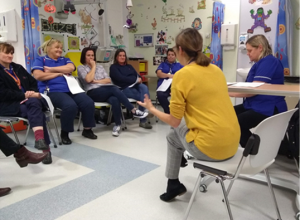
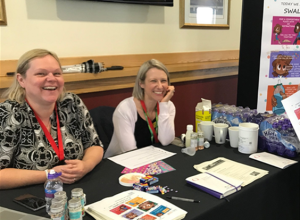
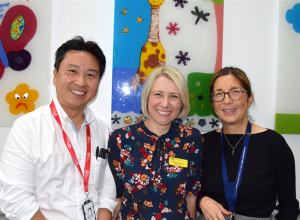
Why are swallowing pills better than liquid medicines?
Swallowing pills are better:
- For children and young people: pills are less sickly, contain less sugar and children who swallow pills tend to have less problems taking their medicines
- For carers: pills have a longer shelf-life, do not need to be kept in a fridge, are easier to carry around and more readily available in local pharmacies
- For pharmacists: pills are more commonly stocked in local pharmacies compared to suspensions and cheaper
Swallowing pills is an important life skill for children to learn, for the reasons above, and because most medicines are in pill form.
What do I need to do to teach my child how to swallow pills?
1. Take a look at our pill swallowing guide below
2. Watch our film with Sister Ailsa Pickering
KidzMed Project: Teaching Children to Swallow Tablets - YouTube
Top tips:
- It really helps your child for you to show them how pleased you are that they have taken their medicines
- It is important to be firm and consistent but avoid punishments or threats
- Make pill taking part of the normal daily routine (e.g. brushing teeth, washing face)
- Try to administer pills at same time and in same place (when possible)
- Give control to the child (e.g. which tablet they want to swallow first, liquid choice)
- Use stories (such as waterfall that washes pebble away)
- Make the process a fun experience
- Try not to bargain or bribe the child
- Avoid tricking the child with food (e.g. hiding the tablet)
- Use food to reduce taste or help with swallowing (e.g. jelly, milk, cold drink, ice cream, yoghurt)
- Avoid thick liquid that could slow down swallowing process.
When your child refuses ...
- Occasionally children may refuse to take their medicines
- Have a matter-of-fact attitude. You expect your child to take the medicine just as you expect them to put on a coat before going out in the cold weather
- Never ask your child if they want to take their medicine
- This is not optional; be firm in telling your child it is time for medicine (e.g. no other activities)
- If your child refuses to take the medicines, stay in the room with the child, alone and remain calm. Your child will be allowed to leave the room and go back to play only after taking the medicine
- Speak to your medical team if your child is not taking their treatment.
Resources
Pill swallowing technique comic, English leaflet displayed below or select a translated version
- Belgium french pill swallowing leaflet
- Bengali pill swallowing leaflet
- Czech pill swallowing leaflet
- Dutch pill swallowing leaflet
- Flemish pill swallowing leaflet
- Greek pill swallowing leaflet
- Hebrew pill swallowing leaflet
- Hindi pill swallowing leaflet
- Mandarin pill swallowing leaflet
- Russian pill swallowing leaflet
- Spanish pill swallowing leaflet
- Swedish vpb15 004 pill swallowing leaflet v1 26 june 2019
- Urdu pill swallowing leaflet
Watch our film with Sister Ailsa Pickering
KidzMed Project: Teaching Children to Swallow Tablets - YouTube
Podcasts
We have a series of podcasts about learning to swallow pills. Listen to Daniel’s podcast to hear his story and find out how swallowing pills made a difference to him.
RCPCH Podcasts: Pill swallowing in children 4 : Daniel's story (libsyn.com)
Listen to Sister Ailsa Pickering talk about teaching children to swallow pills
RCPCH Podcasts: Pill swallowing in children 1: The secret of pill swallowing (libsyn.com)
Where should you seek help?
- If it is non-urgent, speak to your local pharmacist or health visitor.
- If your child has any of the above features, urgently see your GP. For an urgent out-of-hours GP appointment, call NHS 111.
- You should only call 999 or go to your nearest A&E department in critical or life threatening situations.
Pharmacists are experts in many aspects of healthcare and can offer advice on a wide range of long-term conditions and common illnesses such as coughs, colds and stomach upsets. You don’t need an appointment and many have private consultation areas, so they are a good first port of call. Your pharmacist will say if you need further medical attention.
Sound advice
- Visit a pharmacy if your child is ill, but does not need to see a GP.
- Remember that if your child's condition gets worse, you should seek further medical advice immediately.
- Help your child to understand - watch this video with them about going to the pharmacy.
For information on common childhood illnesses go to What is wrong with my child?
Pharmacists are experts in many aspects of healthcare and can offer advice on a wide range of long-term conditions and common illnesses such as coughs, colds and stomach upsets. You don’t need an appointment and many have private consultation areas, so they are a good first port of call. Your pharmacist will say if you need further medical attention.
Sound advice
- Visit a pharmacy if your child is ill, but does not need to see a GP.
- Remember that if your child's condition gets worse, you should seek further medical advice immediately.
- Help your child to understand - watch this video with them about going to the pharmacy.
For information on common childhood illnesses go to What is wrong with my child?
Health visitors are nurses or midwives who are passionate about promoting healthy lifestyles and preventing illness through the delivery of the Healthy Child Programme. They work with you through your pregnancy up until your child is ready to start school.
Health Visitors can also make referrals for you to other health professionals for example hearing or vision concerns or to the Community Paediatricians or to the child and adolescent mental health services.
Contact them by phoning your Health Visitor Team or local Children’s Centre.
Sound advice
Health visitors also provide advice, support and guidance in caring for your child, including:
- Breastfeeding, weaning and healthy eating
- Exercise, hygiene and safety
- Your child’s growth and development
- Emotional health and wellbeing, including postnatal depression
- Safety in the home
- Stopping smoking
- Contraception and sexual health
- Sleep and behaviour management (including temper tantrums!)
- Toilet training
- Minor illnesses
For more information watch the video: What does a health visitor do?
Health visitors are nurses or midwives who are passionate about promoting healthy lifestyles and preventing illness through the delivery of the Healthy Child Programme. They work with you through your pregnancy up until your child is ready to start school.
Health Visitors can also make referrals for you to other health professionals for example hearing or vision concerns or to the Community Paediatricians or to the child and adolescent mental health services.
Contact them by phoning your Health Visitor Team or local Children’s Centre.
Sound advice
Health visitors also provide advice, support and guidance in caring for your child, including:
- Breastfeeding, weaning and healthy eating
- Exercise, hygiene and safety
- Your child’s growth and development
- Emotional health and wellbeing, including postnatal depression
- Safety in the home
- Stopping smoking
- Contraception and sexual health
- Sleep and behaviour management (including temper tantrums!)
- Toilet training
- Minor illnesses
For more information watch the video: What does a health visitor do?
Midwives provide advice, care and support for women and their babies during pregnancy, labour and the early postnatal period. They provide health education and parenting advice until care is transferred to a health visitor. This usually happens when your baby is about 2 weeks old.
Sound Advice
A midwife is an expert in normal pregnancy and birth.
Midwives provide advice, care and support for women and their babies during pregnancy, labour and the early postnatal period. They provide health education and parenting advice until care is transferred to a health visitor. This usually happens when your baby is about 2 weeks old.
Sound Advice
A midwife is an expert in normal pregnancy and birth.
GPs assess, treat and manage a whole range of health problems. They also provide health education, give vaccinations and carry out simple surgical procedures. Your GP will arrange a referral to a hospital specialist should you need it.
Sound advice
You have a choice of service:
- Doctors/GPs can treat many illnesses that do not warrant a visit to A&E.
- Help your child to understand – watch this video with them about visiting the GP or going to a walk in centre
For information on common childhood illnesses go to What is wrong with my child?
GPs assess, treat and manage a whole range of health problems. They also provide health education, give vaccinations and carry out simple surgical procedures. Your GP will arrange a referral to a hospital specialist should you need it.
Sound advice
You have a choice of service:
- Doctors/GPs can treat many illnesses that do not warrant a visit to A&E.
- Help your child to understand – watch this video with them about visiting the GP or going to a walk in centre
For information on common childhood illnesses go to What is wrong with my child?
If you’re not sure which NHS service you need, call 111. An adviser will ask you questions to assess your symptoms and then give you the advice you need, or direct you straightaway to the best service for you in your area.
Sound advice
Use NHS 111 if you are unsure what to do next, have any questions about a condition or treatment or require information about local health services.
For information on common childhood illnesses go to What is wrong with my child?
If you’re not sure which NHS service you need, call 111. An adviser will ask you questions to assess your symptoms and then give you the advice you need, or direct you straightaway to the best service for you in your area.
Sound advice
Use NHS 111 if you are unsure what to do next, have any questions about a condition or treatment or require information about local health services.
For information on common childhood illnesses go to What is wrong with my child?
A&E departments provide vital care for life-threatening emergencies, such as loss of consciousness, suspected heart attacks, breathing difficulties, or severe bleeding that cannot be stopped. If you’re not sure it’s an emergency, call 111 for advice.
Sound advice
A&E departments provide vital care for life-threatening emergencies, such as loss of consciousness, suspected heart attacks, breathing difficulties, or severe bleeding that cannot be stopped. If you’re not sure it’s an emergency, call 111 for advice.
Sound advice
School nurses care for children and young people, aged 5-19, and their families, to ensure their health needs are supported within their school and community. They work closely with education staff and other agencies to support parents, carers and the children and young people, with physical and/or emotional health needs.
Contacting the School Nurse
Primary and secondary schools have an allocated school nurse – telephone your child’s school to ask for the contact details of your named school nurse.
There is also a specialist nurse who works with families who choose to educate their children at home.
Sound Advice
Before your child starts school your health visitor will meet with the school nursing team to transfer their care to the school nursing service. The school nursing team consists of a school nursing lead, specialist public health practitioners and school health staff nurses.
They all have a role in preventing disease and promoting health and wellbeing, by:-
- encouraging healthier lifestyles
- offering immunisations
- giving information, advice and support to children, young people and their families
- supporting children with complex health needs
Each member of the team has links with many other professionals who also work with children including community paediatricians, child and adolescent mental health teams, health visitors and speech and language therapists. The school health nursing service also forms part of the multi-agency services for children, young people and families where there are child protection or safeguarding issues.
School nurses care for children and young people, aged 5-19, and their families, to ensure their health needs are supported within their school and community. They work closely with education staff and other agencies to support parents, carers and the children and young people, with physical and/or emotional health needs.
Contacting the School Nurse
Primary and secondary schools have an allocated school nurse – telephone your child’s school to ask for the contact details of your named school nurse.
There is also a specialist nurse who works with families who choose to educate their children at home.
Sound Advice
Before your child starts school your health visitor will meet with the school nursing team to transfer their care to the school nursing service. The school nursing team consists of a school nursing lead, specialist public health practitioners and school health staff nurses.
They all have a role in preventing disease and promoting health and wellbeing, by:-
- encouraging healthier lifestyles
- offering immunisations
- giving information, advice and support to children, young people and their families
- supporting children with complex health needs
Each member of the team has links with many other professionals who also work with children including community paediatricians, child and adolescent mental health teams, health visitors and speech and language therapists. The school health nursing service also forms part of the multi-agency services for children, young people and families where there are child protection or safeguarding issues.



